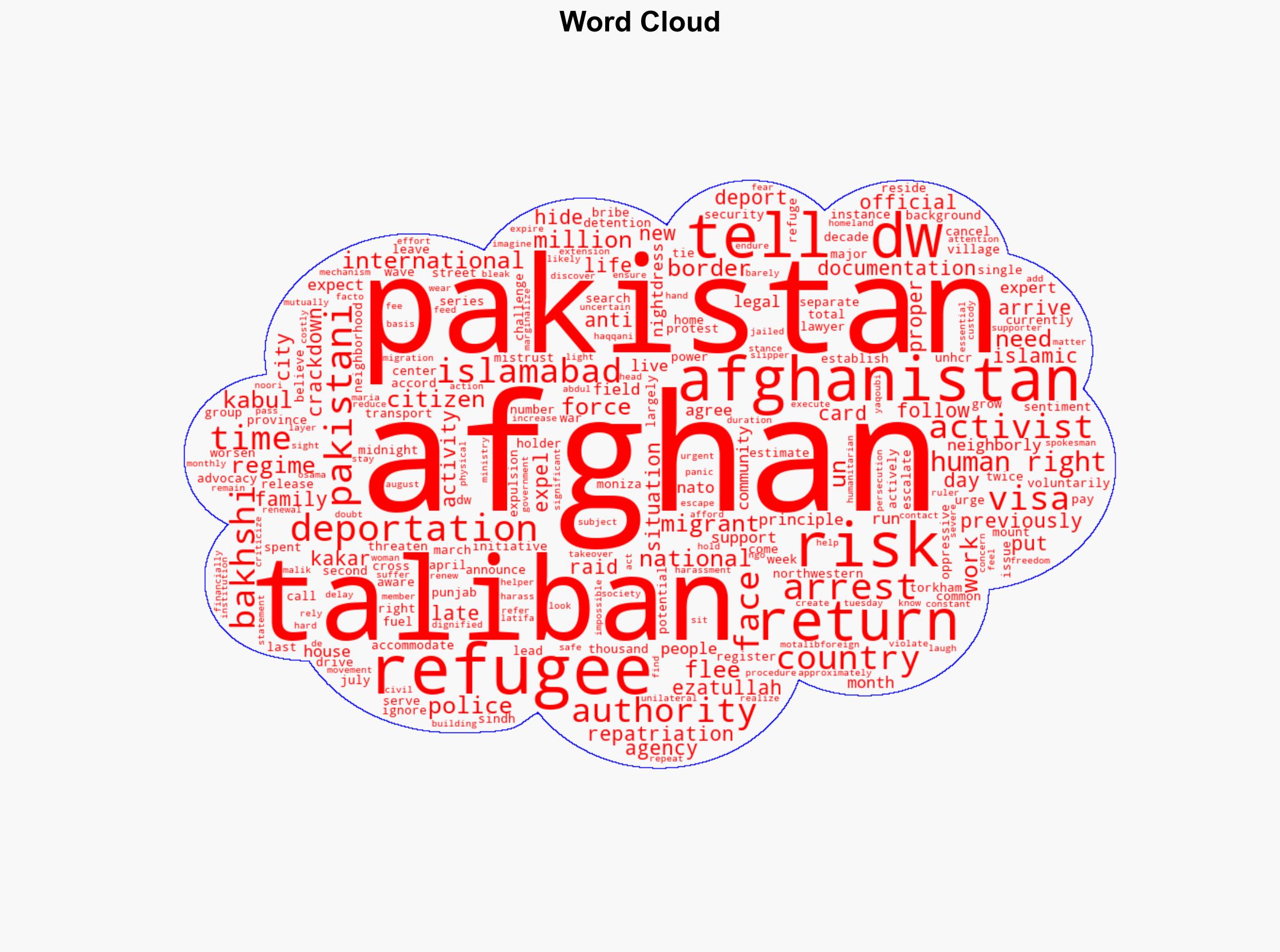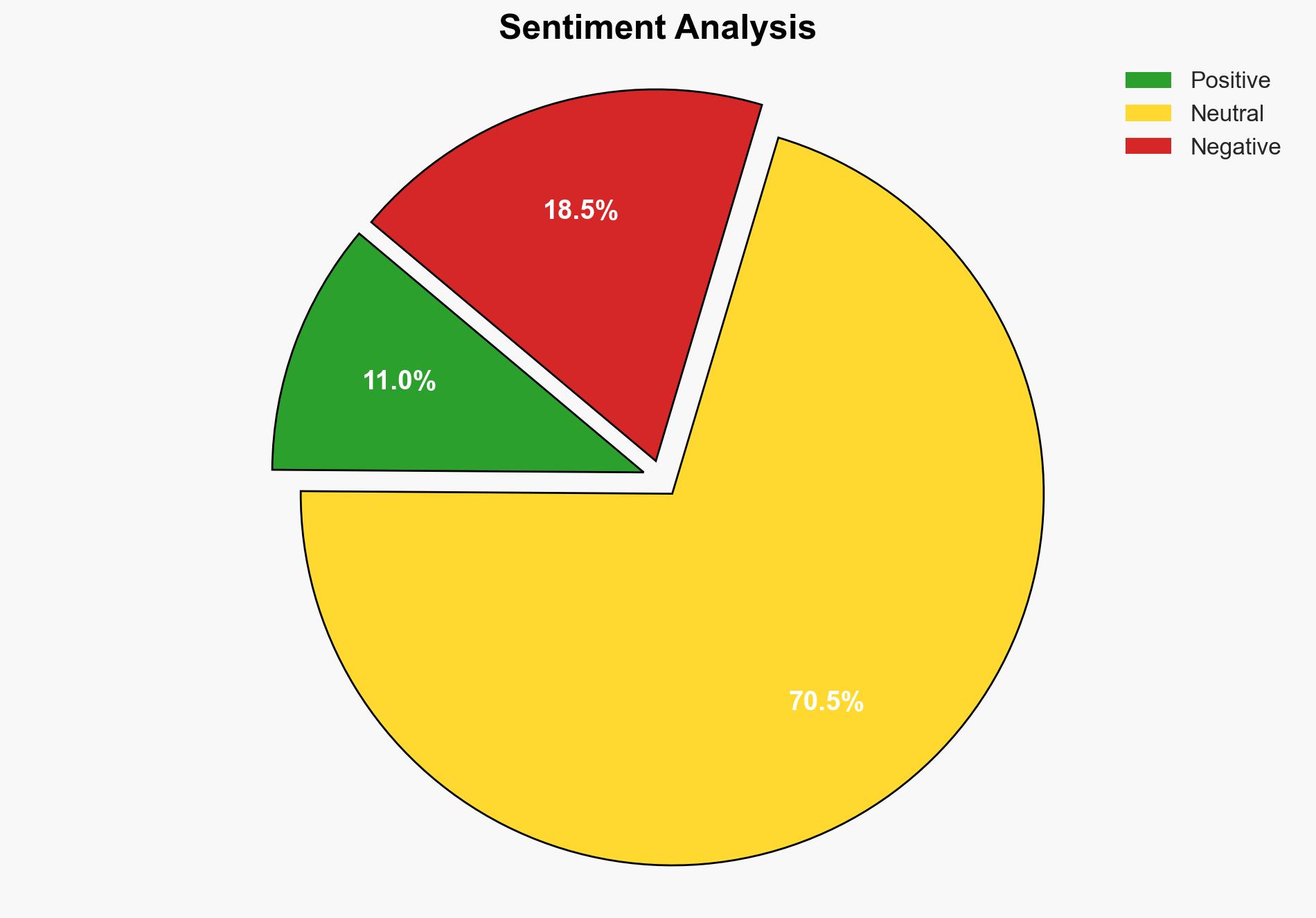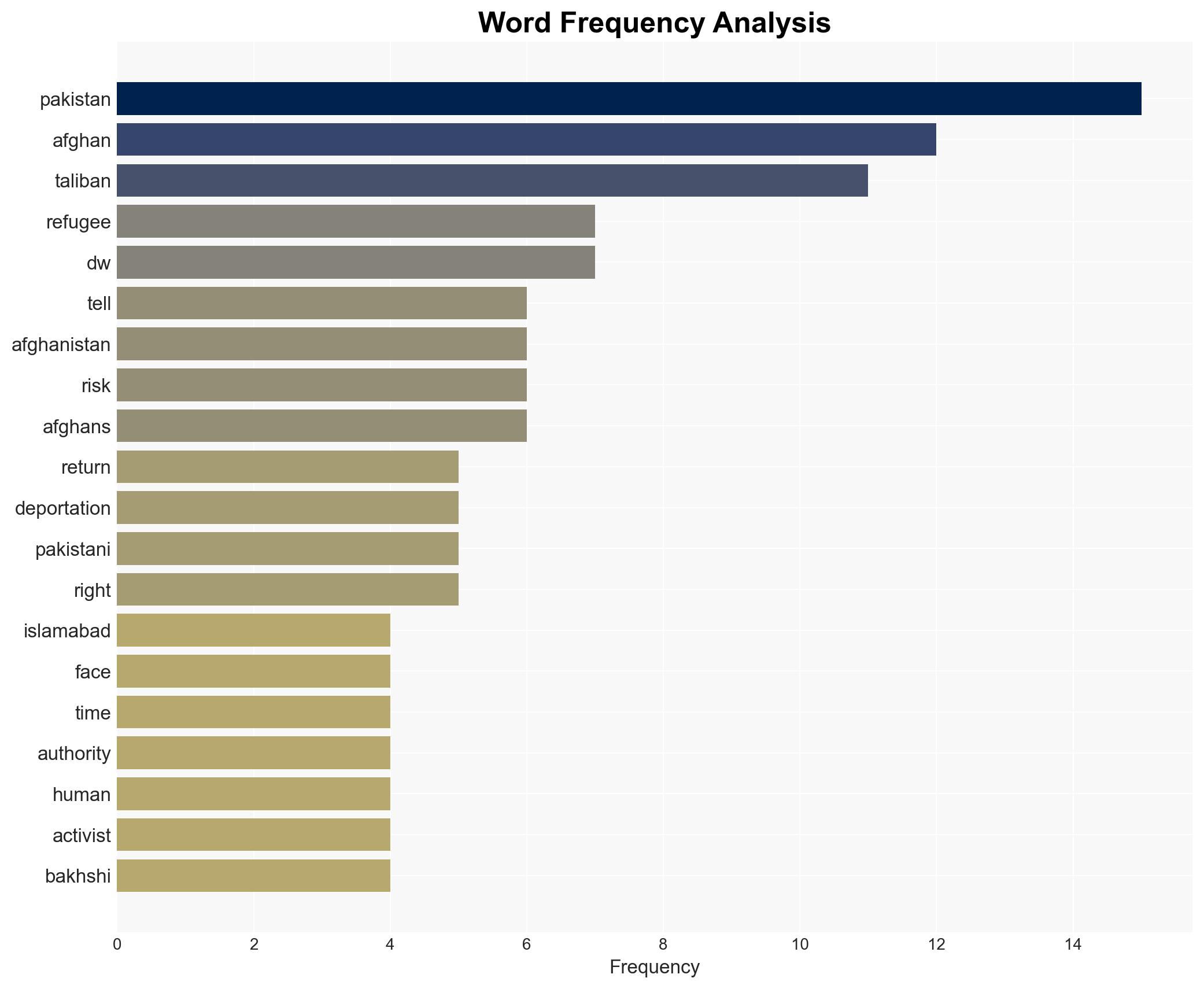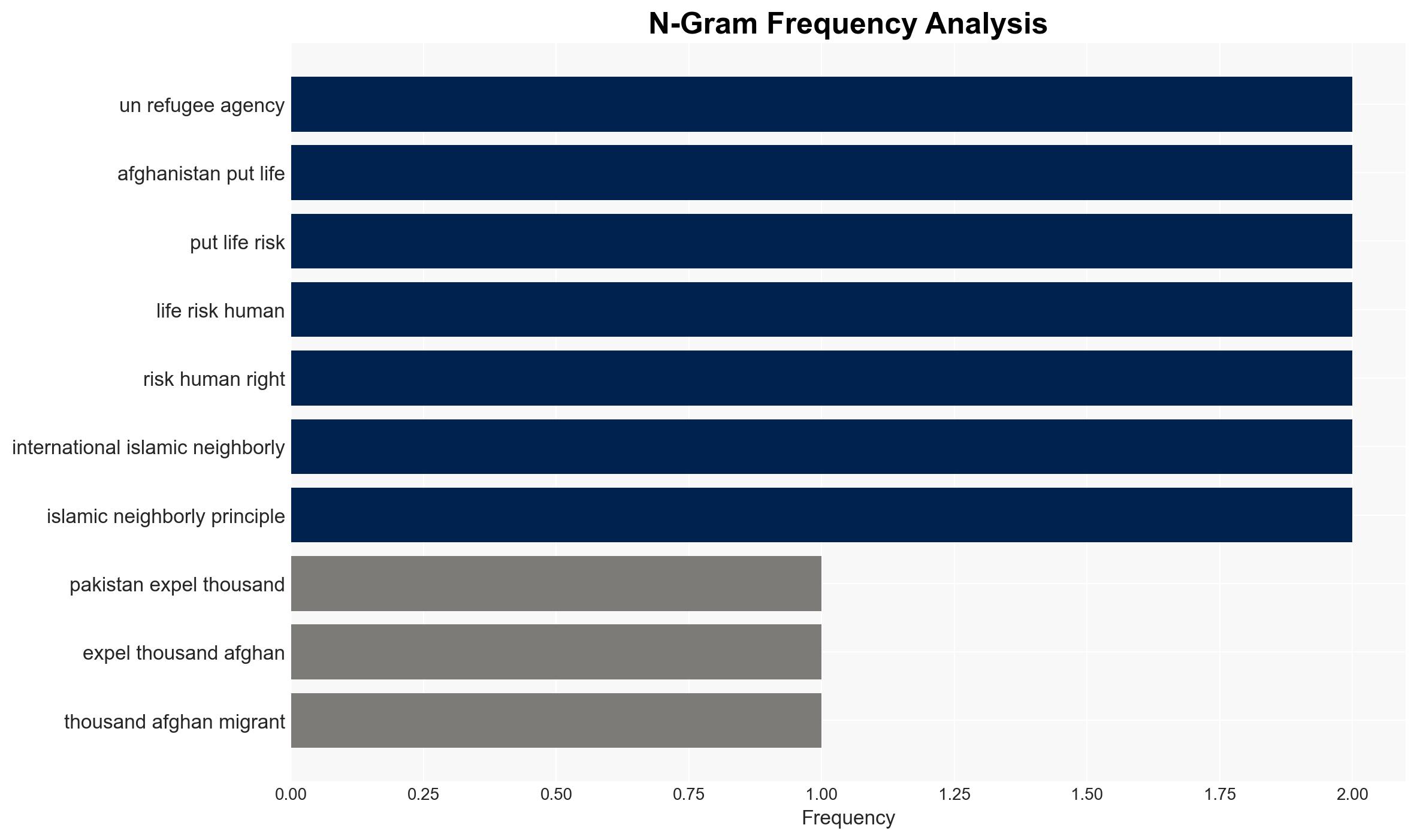Pakistan expels thousands of Afghans in migrant crackdown – DW (English)
Published on: 2025-04-10
Intelligence Report: Pakistan expels thousands of Afghans in migrant crackdown – DW (English)
1. BLUF (Bottom Line Up Front)
Pakistan has initiated a large-scale expulsion of Afghan nationals, expelling over 8,000 individuals in one week as part of a new repatriation initiative. This action follows a deadline for undocumented Afghans to leave voluntarily. The cancellation of 800,000 Afghan Citizen Cards and the establishment of refugee centers indicate a significant escalation in deportation efforts. The crackdown has led to increased tensions between Pakistan and Afghanistan, with potential human rights violations and regional instability as key concerns. Immediate attention and coordinated international response are recommended to address the humanitarian and geopolitical implications.
2. Detailed Analysis
The following structured analytic techniques have been applied for this analysis:
General Analysis
The expulsion of Afghan nationals from Pakistan is a complex issue with deep-rooted historical, political, and security dimensions. The recent crackdown is driven by Pakistan’s security concerns and deteriorating relations with the Taliban regime. The initiative has resulted in increased police activity, including midnight raids, and reports of human rights violations. The situation is exacerbated by the presence of approximately three million Afghans in Pakistan, with only 1.4 million holding proper documentation. The actions taken by Pakistan have drawn criticism from the UN and human rights organizations, highlighting the potential risks for deported individuals, especially those opposing the Taliban.
3. Implications and Strategic Risks
The expulsion of Afghan nationals poses significant risks to regional stability and security. The forced deportations may lead to humanitarian crises, with deported individuals facing persecution in Afghanistan. The strained relations between Pakistan and the Taliban regime could further destabilize the region, impacting cross-border trade and security cooperation. Additionally, the crackdown may fuel anti-Pakistan sentiment among Afghans, potentially leading to retaliatory actions or increased support for insurgent groups.
4. Recommendations and Outlook
Recommendations:
- Engage in diplomatic dialogue with Afghan authorities to address security concerns and improve bilateral relations.
- Coordinate with international organizations to ensure the humane treatment of deported individuals and provide necessary humanitarian assistance.
- Implement regulatory measures to streamline the documentation process for Afghan nationals residing in Pakistan.
Outlook:
Best-case scenario: Diplomatic efforts lead to improved relations between Pakistan and Afghanistan, resulting in a reduction of forced deportations and enhanced regional stability.
Worst-case scenario: Continued expulsions exacerbate tensions, leading to increased violence and instability in the region.
Most likely scenario: Ongoing deportations with intermittent diplomatic engagements, maintaining a fragile status quo with periodic escalations.
5. Key Individuals and Entities
The report mentions significant individuals such as Moniza Kakar and Ezatullah Bakhshi, as well as entities like the UN refugee agency and the Taliban regime. These individuals and organizations play crucial roles in the unfolding situation, influencing both humanitarian and geopolitical outcomes.




